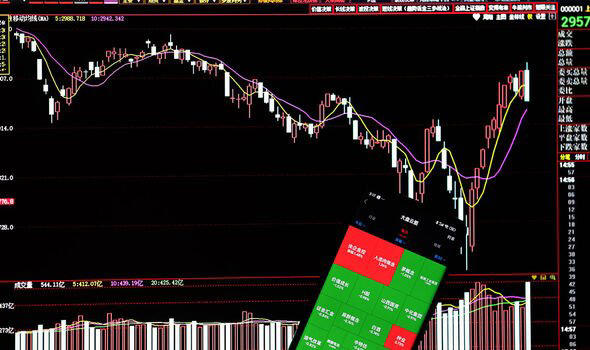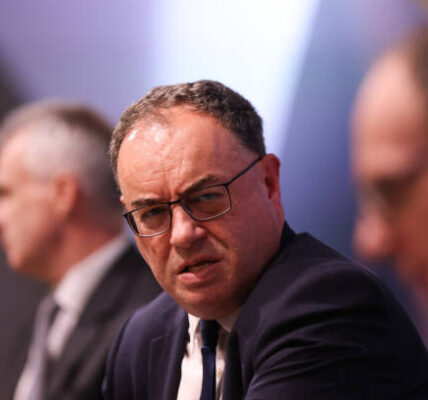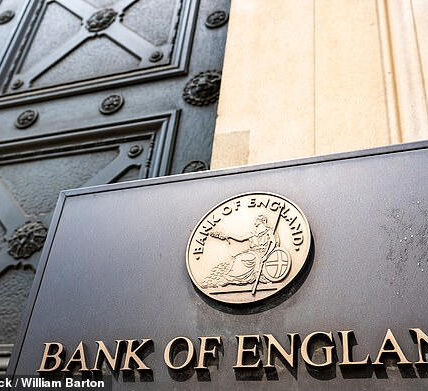US Economic Collapse Fears Shake Global Markets
US economic collapse fears have led to a significant plunge in global stock markets. Investors and analysts are concerned about the potential impact on the economy, especially after the Federal Reserve’s recent decisions.

© GB News
Concerns Over US Economic Collapse Fears
US economic collapse fears are causing widespread concern in global markets. Recently, the stock markets experienced a sharp decline, sparking anxiety among investors and analysts alike. The primary worry stems from the Federal Reserve’s decision not to cut interest rates earlier this week, despite signs of easing inflation in the United States. The Federal Funds Rate remains at a 23-year high, ranging between five to 5.25 percent. This move contrasts with actions taken by other central banks, such as the Bank of England, which have been more proactive in reducing base rates.
Surprising Market Reactions and Global Impact
The severity of the market reaction has caught many by surprise. In Japan, the Nikkei 225 index plummeted by 2,216.63 points, marking the second-largest points drop in its history. This significant decline was triggered by weaker-than-expected factory data from the US, revealing that output fell to an eight-month low in July. Additionally, the number of initial weekly jobless benefit claims in the US reached a 12-month high, further fueling fears of a potential economic downturn.
The ripple effect of these US economic collapse fears has been felt across Europe as well. The pan-European Stoxx 600 index dropped by 1.7 percent, reaching a three-month low. Germany’s Dax index fell by 1.6 percent, while France’s Cac 40 index decreased by one percent. The UK’s FTSE 100 also experienced a dip, dropping by 0.7 percent. These declines highlight the global nature of the economic concerns and the interconnectedness of international markets.
The Need for Federal Reserve Action
With US economic collapse fears looming, there is growing pressure on the Federal Reserve to take action. The Federal Open Market Committee (FOMC) has only three more interest rate announcements scheduled for this year. Analysts and traders predict that the FOMC will need to implement 1.75 percentage points of interest rate cuts to stave off a potential recession. The recent underperformance of major tech companies, including Apple and Amazon, has only compounded the existing market concerns, further rattling investor confidence.
Investor Anxiety and Future Predictions
Despite Federal Reserve Chairman Jerome Powell hinting at a possible rate cut in September, investors remain uneasy. The initial optimism following Powell’s comments has quickly dissipated, replaced by growing fears that the central bank may not act swiftly enough. Kiyoshi Ishigane, a chief fund manager at Mitsubishi UFJ Asset Management, expressed his surprise at the extent of the market decline. He noted that the significant drop in stock prices could be attributed to mounting concerns about a potential collapse of the US economy. This scenario, Ishigane emphasized, would have a profoundly negative impact on Japanese stocks, which are highly sensitive to global economic trends.
José Torres, a senior economist at Interactive Brokers, echoed these sentiments. He pointed out that while Powell’s suggestion of a rate cut in September provided temporary relief, it ultimately failed to calm investor nerves. Torres highlighted the urgency for the Federal Reserve to act decisively to prevent a full-blown economic crisis.
Looking Ahead: What’s Next?
The upcoming FOMC meeting, scheduled between September 17 and 18, will be closely watched by investors and market analysts. The stakes are high, with US economic collapse fears hanging in the balance. The decisions made at this meeting could determine the course of the US economy and, by extension, the global financial landscape.
In the meantime, markets are likely to remain volatile as investors react to new data and policy announcements. The possibility of further rate cuts, or the lack thereof, will be a critical factor in shaping market sentiment in the coming weeks. As US economic collapse fears continue to dominate headlines, the world watches closely, hoping for signs of stability and recovery.
In summary, the current state of global markets reflects deep-seated anxieties about the US economy’s future. The Federal Reserve’s decisions in the coming months will be crucial in addressing these US economic collapse fears and restoring confidence in the financial system. For now, caution and vigilance remain the order of the day as investors navigate these uncertain times.
ALSO READ:
“FTSE 100 Investments: 3 Powerful Picks for Growth”



